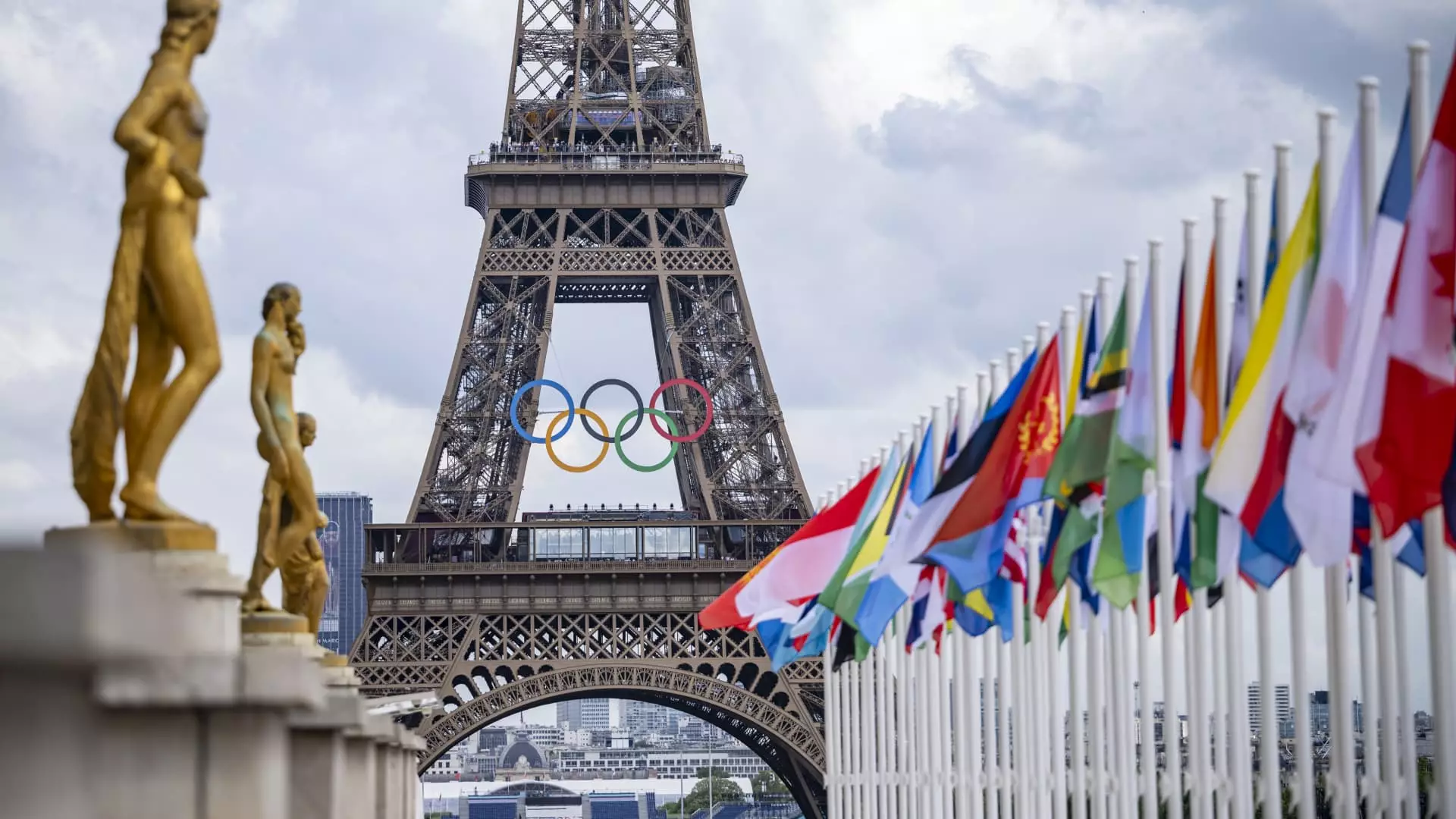Mega events such as the Olympic Games and big concerts like Taylor Swift’s tours are known to cause a surge in prices across various industries, including hotels and airlines. However, a recent analysis by UBS suggests that despite the rise in demand during these events, the impact on French consumers may not be as significant as perceived. The methodology for calculating consumer price changes may skew the results, capturing the spiking costs in industries associated with tourism and creating a distorted impression of inflation.
The ongoing Summer Games in Paris have led to a similar phenomenon, with a sudden increase in demand for hotel rooms and other services. While the influx of tourists has resulted in a surge in hotel prices and occupancy rates, the impact on the average French consumer may be limited. According to Paul Donovan, chief economist at UBS Global Wealth Management, most French consumers are not affected by the price hikes associated with mega events like the Olympics, unless they are directly participating in or attending the games.
Tourism Trends and Economic Impact
The Paris tourist office reported a significant increase in the number of visitors during the first week of the Games, with a notable rise in international tourists, particularly from the U.S. While the tourism sector has experienced a boon during the Olympics, concerns about the long-term economic impact remain uncertain. Donovan believes that despite short-term gains in the tourism industry, the overall economic impact of mega events like the Olympics in Paris may not be as substantial as projected.
The Paris 2024 Olympics are expected to generate a substantial economic impact, with estimates suggesting a potential long-term economic boost of $12 billion or 11.1 billion euros. While past Olympics have seen significant tourism booms, the sustainability and cost-effectiveness of hosting such mega events are being questioned. The International Olympic Committee’s reforms aim to make the Games more economically sustainable, with a focus on utilizing existing venues and resources to minimize costs.
In addition to the hospitality sector, the airline industry in Paris has witnessed fluctuations in demand leading up to the Olympics. Despite initial forecasts of revenue declines, recent data shows an increase in flight bookings to the city. Small businesses across Paris have also benefited from the influx of visitors, with a notable boost in sales during the initial days of the Games. While short-term gains are evident, the long-term economic impact remains uncertain.
While mega events like the Olympic Games can lead to short-term economic boosts in tourism-dependent industries, the overall impact on consumer prices and the broader economy may be limited. The methodology for measuring consumer price inflation during such events may provide a distorted view of the actual impact on average consumers. As Paris hosts the 2024 Olympics, the focus remains on balancing the economic benefits of hosting the Games with the long-term sustainability and cost-effectiveness of such events.

